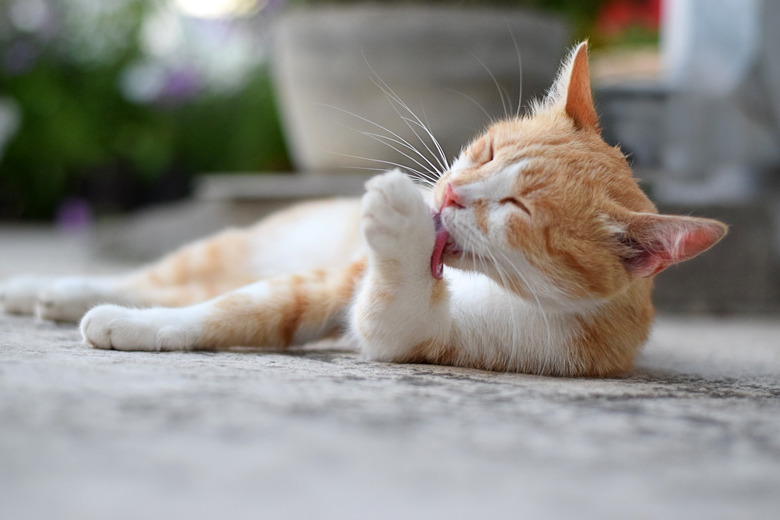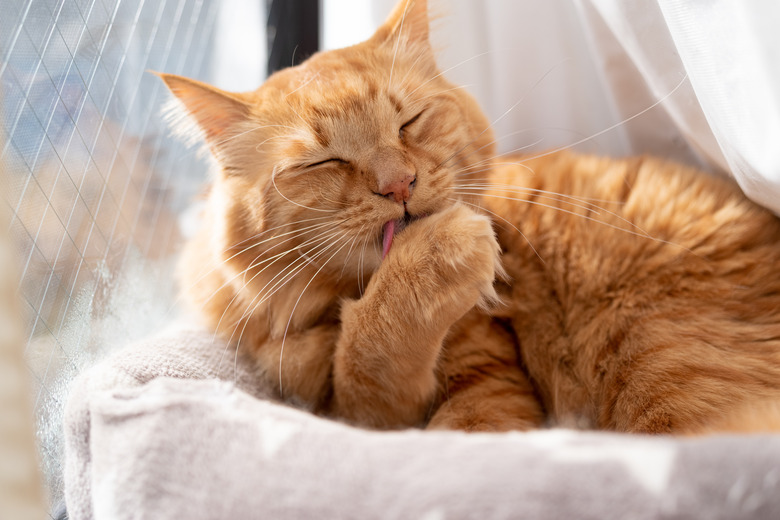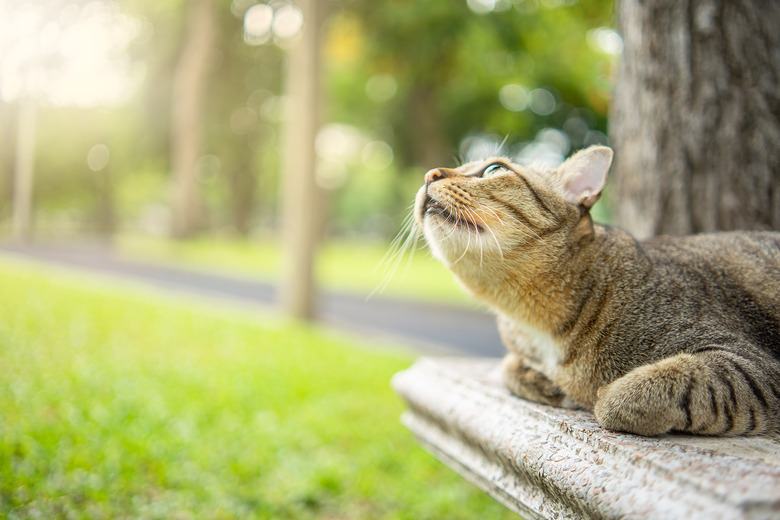Cat Pulling Hair Out? How To Stop A Cat From Pulling Her Hair Out
Seeing a cat licking themselves is a very common site. When they're in their most relaxed state, cats can usually be found stretched out and lounging in a warm patch of sun or snuggled up on their favorite soft surface, where they can truly indulge in their elaborate grooming rituals. For felines, part of their self-care regimen involves using those scratchy tongues to "brush" and clean their fur, but sometimes, excessive grooming can cause entire patches of hair to come out, resulting in thin or bald patches on your cat's skin. Is this behavior a normal part of the cleansing routine, or could it be overgrooming and a sign of something else?
Does my cat have alopecia?
Does my cat have alopecia?
Hair loss in mammals is usually a symptom of an underlying disease or disorder, especially if your cat is pulling out their own hair. Whatever the species — cat, dog, or human — the condition of hair loss is technically known as alopecia, which refers to the partial or total loss of hair in an area where hair is usually found. For humans, this could be referring to hair loss on the head, and for cats, alopecia can affect essentially any part of their fur-covered body. Sometimes, alopecia can occur at birth due to underdeveloped hair follicles.
Why is my cat pulling their hair out? Common causes
Why is my cat pulling their hair out? Common causes
In order to stop your cat from pulling out their hair, you'll need to identify the exact cause of such cat behavior and treat it accordingly. The most common causes of cats pulling out their own hair is because their skin is itchy.
If you notice your cat scratching and chewing at their fur, especially if your cat is pulling out hair at the base of the tail, there's a good chance there could be an infestation of fleas, mites, or even a tick. A yeast infection may be another cause of itchiness and hair pulling in cats, as could a food allergy or an allergic reaction to their environment.
In some cases, cats can pull out their hair due to obsessive-compulsive tendencies or extreme anxiety. Conditions such as feline psychogenic alopecia can result in compulsive grooming habits, like licking, tearing out patches of hair, chewing on paws, or tail chasing, to name a few. This cat behavior is usually the result of a neurological disorder or may be used as a coping mechanism for stress, anxiety, or fear.
Hair pulling prevention for cats
Hair pulling prevention for cats
Once you've identified why your cat is pulling out their hair, you can treat the problem and prevent it from recurring. If your cat is chewing on their skin or pulling out their hair because of parasites, like fleas, medicated flea drops given on a regular basis will not only kill existing fleas but can prevent new bugs from settling on your feline's furry body.
If no mites or flea bites are present on your cat but they're still steadily scratching their skin or chewing on parts of their body, you may want to speak to your veterinarian about allergy testing and food trials. If you suspect that an allergy to an ingredient in their cat food is what's causing your cat to pull out their hair, your veterinarian will likely recommend an elimination diet, which will help to isolate the exact protein that's causing the allergic reaction.
Environmental allergies, yeast, or other bacterial infections can be identified through either a skin test or skin scraping, and treatment from that point should not be terribly invasive or troublesome.
Psychological hair pulling prevention for cats
Psychological hair pulling prevention for cats
Psychological hair pulling will require a slightly different approach to treatment and prevention, but once you've identified the trigger that's setting off your cat's compulsive tendencies, you will be able to curb their attempts over time. Some cats will require more stimulation and playtime to keep their teeth off their fur, while others will need a calm and stress-free environment to keep them from pulling out their hair. A new pet in the home or even a new family member may trigger either the new pet or the existing pet to start pulling in their hair. Each course of action will depend on your cat and their specific medical condition.
To determine the right path for your cat health, it's recommended that you consult your veterinarian or a behaviorist to help you assess why cats over-groom. Keep an eye out for anything in your cat's environment that may be inducing anxiety so that you can take steps toward eliminating the stressor from your cat's life if possible.
The bottom line
The bottom line
Whether referring to humans or animals, alopecia is the partial or total loss of hair in an area where hair is usually found. The most common reason cats pull out their own hair is due to itchy skin, which can be caused by fleas, environmental allergies, a food allergy, a fungal infection, or a bacterial infection. Alopecia can also be caused by stress. If your cat's hair is falling out or being pulled out, it's best to consult with your veterinarian to figure out the exact cause and best course of treatment.


